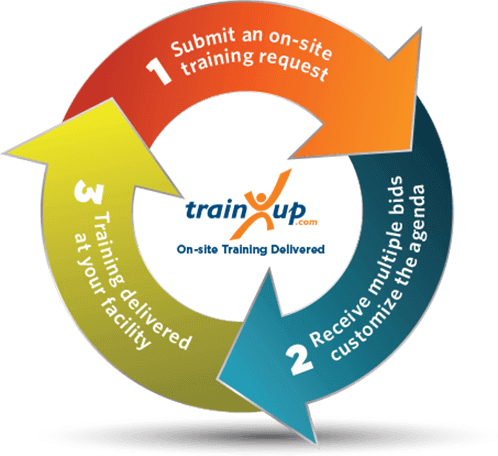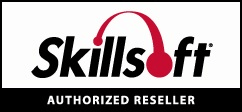
Diversity Training Your Way
Or Choose From 24 Human Resources Sub-Categories
- ADA-Disabilities Training
- Affirmative Action - EEO Training
- Cafeteria Plan Training
- COBRA Training
- Compensation and Benefits Training
- Diversity Training
- FLSA Training
- FMLA Training
- HIPAA Training
- HR Compliance Training
- HR Generalist Training
- HR Internal Investigations Training
- HR Management Training
- Labor Law Training
- OSHA Training
- Payroll Training
- Personnel Law Training
- PHR - SPHR Training
- Recruiting - Hiring Training
- Sexual Harassment Training
- State Regulations Training
- Work and Life Training
- Workers' Compensation Training
- Workplace Health and Safety Training
Diversity Training, Inclusion DEI Courses and Seminars
TrainUp.com is your one-stop source for the best virtual diversity training and live courses nationwide. Start your search now and browse among 5 live instructor-led diversity training classes near you, from the industry's best diversity training companies such as BizLibrary, SkillSoft, and American Management Association International TrainUp.com also lists more than 58 self-paced online diversity training courses, micro-learning videos, and eLearning bundles. If you have a team to train, we can conduct a course just for you. Check out our onsite on-site diversity training page to request a custom virtual or in-person training quote today.
Request Diversity On-Site Training. We bring the best instructors to you.
TrainUp.com is your one-stop source for the best virtual diversity training and live courses nationwide. Start your search now and browse among 5 live instructor-led diversity training classes near you, from the industry's best diversity training companies such as BizLibrary, SkillSoft, and American Management Association International TrainUp.com also lists more than 58 self-paced online diversity training courses, micro-learning videos, and eLearning bundles. If you have a team to train, we can conduct a course just for you. Check out our onsite on-site diversity training page to request a custom virtual or in-person training quote today.
Live Training
(4 Classes)
Self-Paced Courses
(6 eLearning Courses)
& Video Collections
(22 Bundles)
Up to 37% off Training
DEI Essentials: From Awareness to Inclusive Action
Diversity, Equity, and Inclusion in Action
Strategic Equity, Diversity and Inclusion for Leaders
Recognizing and Challenging Unconscious Bias and Microaggressions
Affirmative Action in the Workplace
Representing Women Who Have Fallen Victim to Discrimination in the Workplace
Reducing Unconscious Bias
Unconscious Bias in the Workplace
Avoiding Bias in a Workplace Investigation
Workplace Diversity on the Job
Unconscious Bias and Diversity
Workplace Diversity - Make it Count
Fostering a Culture of Inclusion
Inclusive Leadership Bundle
Leveraging Key Management Techniques
Managing a Multigenerational Workforce
Generations in the Workforce Video Collection
Compliance and Unconscios Bias 101
A Transformational Approach to HR and Talent Management
Culture of Civility: Creating a Harassment-Free Workplace (New York)
Business Essentials eLearning Library
Essential Skills for Business Professionals
Business Premium eLearning Library

Get Up to 20% off Live & Online Training Courses

We’ll Conduct The Course Just For Your Team

Get Up to 20% off eLearning
SCORM /AICC compliant. Upload content to your LMS
We’ll help customize your curriculum. Send us a request today to preview our entire online training catalog

Customized eLearning Solutions
ILT /Virtual Live to eLearning MicroLearning Video Development Mobile Learning Gamified Learning Flash to HTML5 Conversion
TrainUp.com is your one-stop source for the best virtual diversity training and live courses nationwide. Start your search now and browse among 5 live instructor-led diversity training classes near you, from the industry's best diversity training companies such as BizLibrary, SkillSoft, and American Management Association International TrainUp.com also lists more than 58 self-paced online diversity training courses, micro-learning videos, and eLearning bundles. If you have a team to train, we can conduct a course just for you. Check out our onsite on-site diversity training page to request a custom virtual or in-person training quote today.

Request Diversity On-Site Training. We bring the best instructors to you.
Inclusion DEI Courses and Workshops
The workforce is constantly changing and as diversity expands in the United States so are the defining factors surrounding diversity, equity, and inclusion. DEI - Diversity Equity and Inclusion is one of the most important topics trending in the workforce today. That’s good news for employers, leaders, and jobseekers as connections are formed from a variety of backgrounds, cultures, and industries to allow businesses to appeal to a wider audience of potential employees, customers and business partnerships. Employers must adapt to the ever-changing workplace by providing diversity, equity, sensitivity, and inclusion training for all employees. Understanding diversity outside of just the law helps employers and employees gain a more in-depth understanding of equal-opportunity and how we are all impacted by diversity. More and more companies are adopting diversity programs to help with change management strategies that ultimately impacts company culture, branding, and future growth. By integrating diversity programs within an organization, employers can help the entire organization learn to appreciate and accommodate more differences, to find commonality within our workforce and across the globe.
Related Diversity Training
- Diversity training in New York, NY
- Diversity training in Los Angeles, CA
- Diversity training in Chicago, IL
- Diversity training in Houston, TX
- Diversity training in Philadelphia, PA
- Diversity training in Phoenix, AZ
- Diversity training in San Antonio, TX
- Diversity training in San Diego, CA
- Diversity training in Dallas, TX
- Diversity training in San Jose, CA
- Diversity training in Indianapolis, IN
- Diversity training in Jacksonville, FL
- Diversity training in San Francisco, CA
- Diversity training in Columbus, OH
- Diversity training in Charlotte, NC
- Diversity training in Detroit, MI
- Diversity training in Seattle, WA
- Diversity training in Denver, CO
- Diversity training in Boston, MA
- Diversity training in Oklahoma City, OK
- Diversity training in Las Vegas, NV
- Diversity training in Kansas City, MO
- Diversity training in Atlanta, GA
- Diversity training in Toronto, ON
- Diversity training in Vancouver, BC
Join The 50,000+ Companies That Have Purchased Training from TrainUp.com
-
50K+ Companies Trained
Including 90% Of Fortune 500 Companies Have Purchased Training With TrainUp.com
-
300K+ Courses & Videos
Live Instructor-Led (Classroom & Virtual), Self-Paced E-learning & Custom OnSite Training Solutions From Leading Training Providers
-
800+ Expert Instructors
Industry-Leading Subject Matter Experts (SMEs).Tenured &
Award-Winning Instructor Network
Get the latest industry news, recommended courses, & promotions from TrainUp.com sent straight to your inbox.











